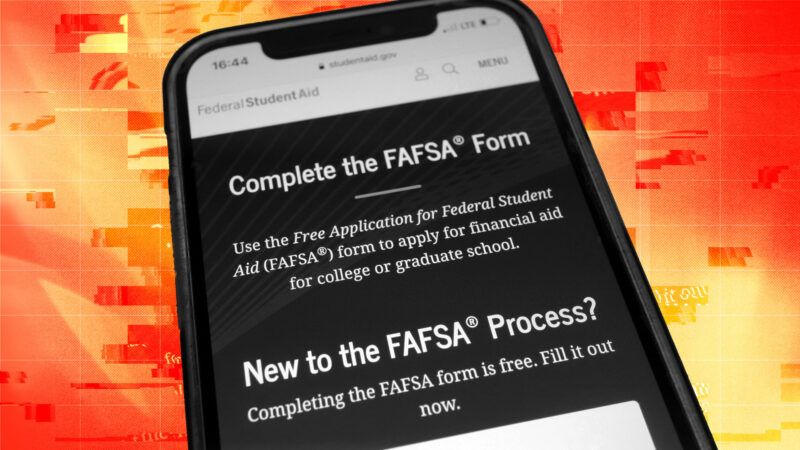The Education Department Will Probably Mess Up Next Year's FAFSA Too
A letter from higher education professionals warns that next year's FAFSA will likely face delays.

This year, the Department of Education created a massive headache for millions of college students and their families when it released an updated version of the Free Application for Federal Student Aid (FAFSA) form that was riddled with technical bugs.
Completing the FAFSA form is required for anyone seeking federal grants and loans, as well as institutional financial aid at the vast majority of American colleges and universities. However, despite the form's importance, issues with this year's FAFSA made it nearly impossible to complete for many families and led to a dramatic 13.5 percent decline in completed FAFSA applications by high school seniors by the end of May.
The issues stem from the 2021 Consolidated Appropriations Act, which directed Education Department officials to release a new version of the form. However, when the new form was released last December, it was riddled with glitches. Making matters worse, it was released almost three months later than the form's typical release date.
The dozens of technical issues that followed created a nightmare for families and colleges alike. While college students and their parents struggled to complete the forms, college financial aid offices struggled to give students an accurate estimation of how much financial aid they would receive.
Last month, Education Secretary Miguel Cardona apologized during a congressional hearing, telling lawmakers, "I apologize to the students and families that have had to deal with delays" and characterizing the rollout as "frustrating" and "challenging."
However, there's little indication that next year will be any better. Last week, a group of 25 organizations representing college administrators, government officials, and other higher education professionals released an open letter sounding the alarm over signs that next year's form will also be riddled with issues.
The letter highlighted that there are less than four months until October 1, the usual FAFSA release date, but a draft FAFSA has yet to be released, even though that usually occurs by the end of February. "We are concerned that the FAFSA will be delayed again, and that the release date will remain uncertain until just before the form becomes available," the letter reads. "This approach will lead to a repeat of last year, with schools and counselors unable to plan the counseling and outreach efforts that are needed, colleges unable to ensure a smooth and timely process for generating financial aid offers, and students left in the lurch."
The letter also highlighted the 13. 5 percent precipitous decline in completed FAFSA applications.
"This drop is twice the magnitude of the FAFSA completion decline that occurred during the pandemic, which portended a 7.4% drop in college enrollment," the letter reads. "Unless the current trajectory changes dramatically, we will again experience a significant decline in college enrollment this fall, during a time when college enrollment is still below prepandemic levels."
These persistent problems indicate that this year's FAFSA nightmare is likely to continue—and that the Education Department hasn't learned from its mistakes.


Show Comments (36)